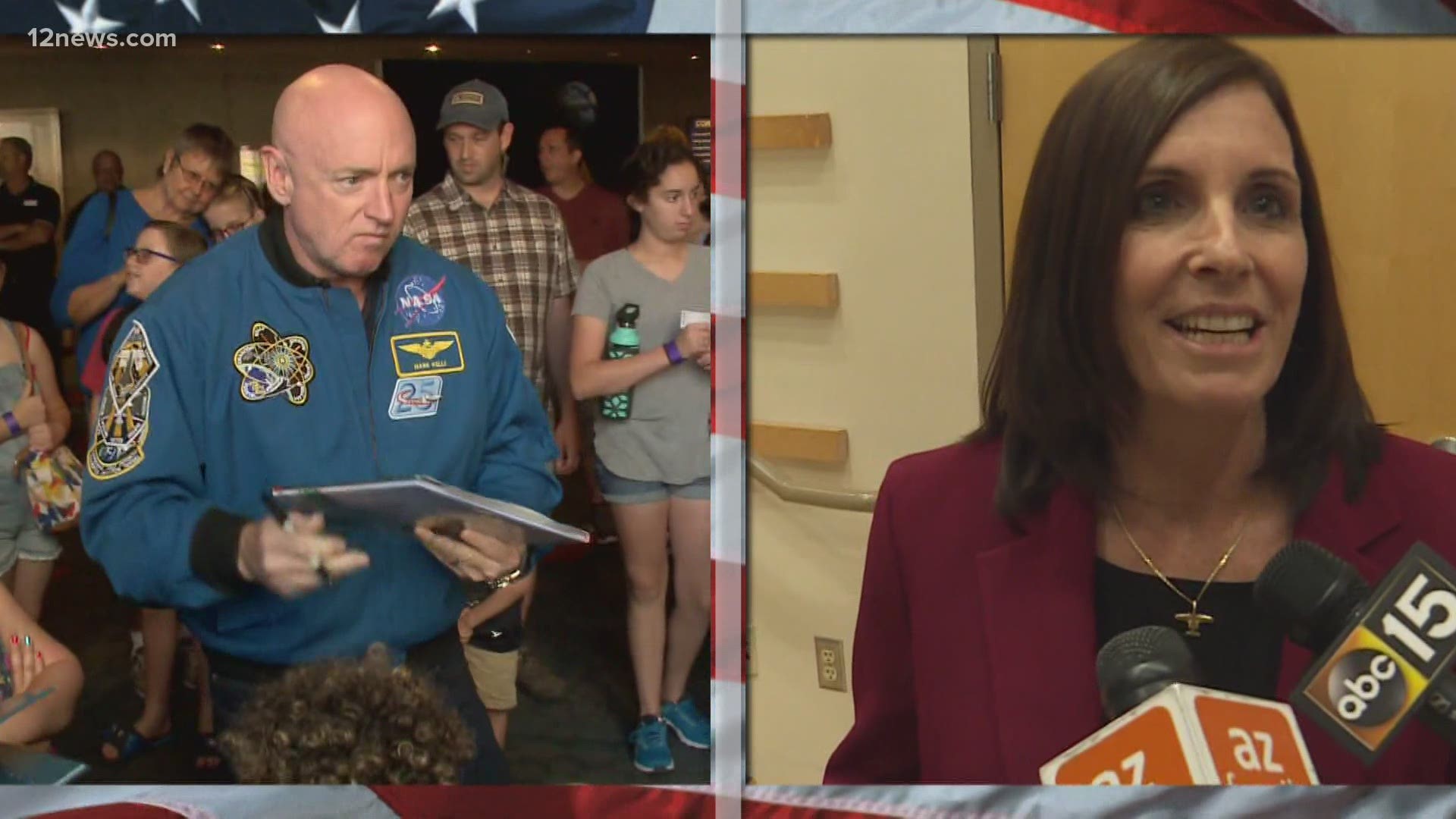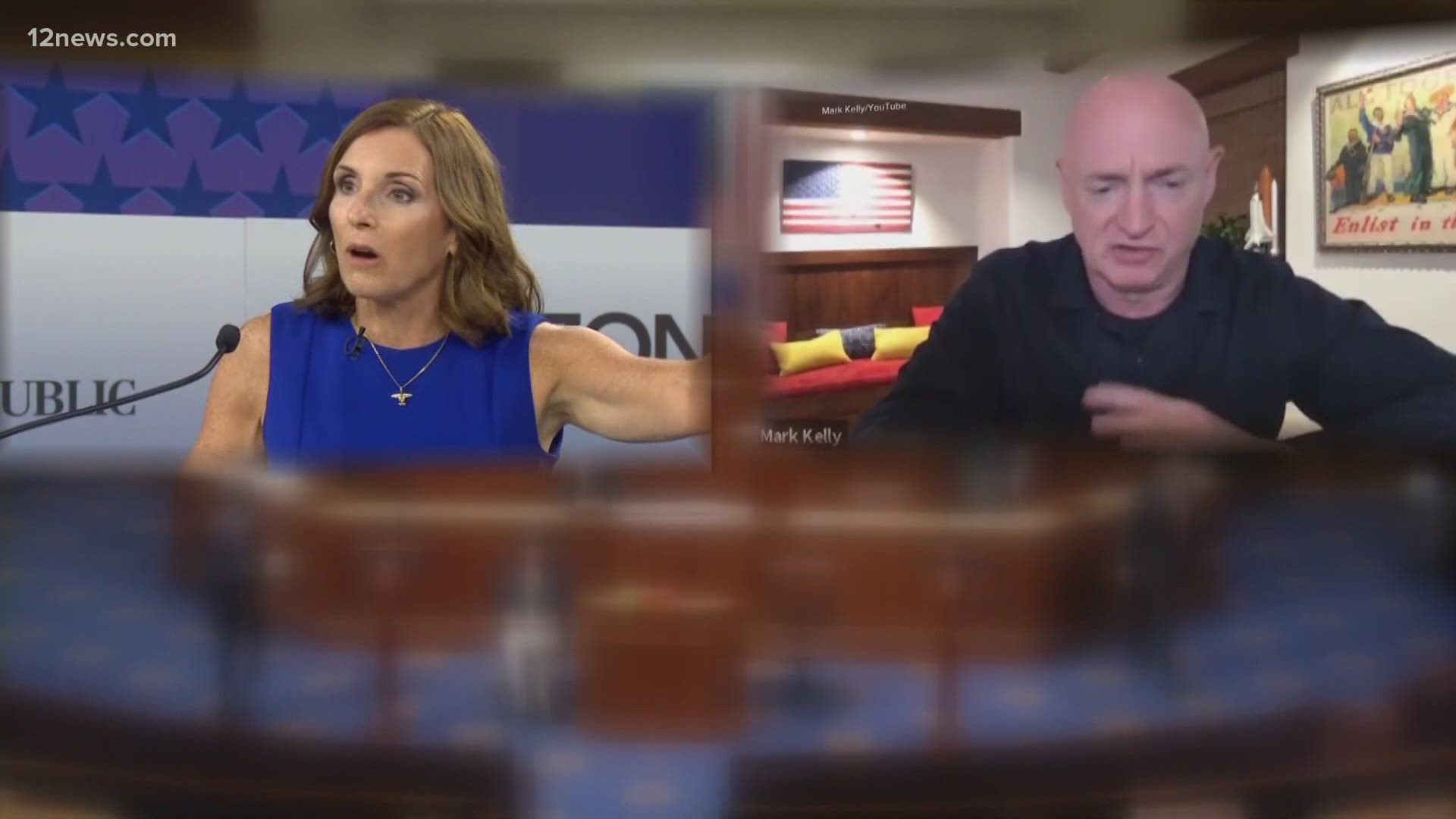PHOENIX — President Donald Trump said Monday he would probably nominate a successor to Supreme Court Justice Ruth Bader Ginsburg on Saturday.
Here are five ways Arizona would be affected by the nomination fight and the potential fallout this year and next:
1. Which Arizona senators will cast a vote? There’s still a lot we don’t know yet about the nomination process.
Arizona election law could force Senate Majority Leader Mitch McConnell’s hand on one key question: Does he push for a floor vote on the nominee before or after Election Day?
If McConnell waits until after Election Day, he could lose one vital Republican vote, when he can’t afford to lose more than three.
Under Arizona law, if Democrat Mark Kelly wins the Nov. 3 special election for the U.S. Senate, he could take Republican Sen. Martha McSally’s place in the Senate as soon as Nov. 30. After a regular election, the winner would be seated in early January.
“The law just does not treat appointed persons in an elected position the same way it does elected officials,” said election law attorney Tim La Sota.
“When you’ve got somebody who has actually won an election, they are given the right to occupy that seat early if that seat is held by someone who has merely been appointed.”
Gov. Doug Ducey appointed McSally in December 2018 to the seat held by the late Sen. John McCain. The November election is special, because it would fill out the remaining two years of McCain’s term.
Within 90 minutes after Ginsburg’s death was announced Friday evening, McSally tweeted her support for filling the seat.
In a statement Saturday, Kelly said the people elected Nov. 3 should decide who the next justice will be.
Democratic Sen. Kyrsten Sinema hasn’t commented on whether the Senate should move ahead with confirmation hearings.
2. What Arizona voters think: The Supreme Court vacancy adds a new issue to Arizona’s widely watched presidential and Senate races. There’s no polling yet on the president’s plans.
But a survey released early Friday shows Arizona voters put greater trust in Democratic nominee Joe Biden than in President Trump to choose a Supreme Court justice.
Biden was favored by 53%, Trump by 43%, according to a New York Times/Siena College survey released Friday, before Ginsburg’s death was announced.
3. What’s at stake I? A major blow to the Affordable Care Act.
One week after the election, the now eight-member Supreme Court will hear arguments on a case brought by Republican attorneys general, including Arizona’s Mark Brnovich.
A 4-4 ruling would strike down a foundational piece of the health care law - and might eliminate protections for people with pre-existing conditions.
More than 150,000 Arizonans are enrolled in Affordable Care Act plans.
Small businesses argue the ACA has driven up their health insurance costs.
President Trump has yet to present his long-promised replacement for the ACA.
4. What’s at stake II? The return of a statewide abortion ban.
Arizona has a 1960s-era law on the books that bans abortion and restricts contraception. It hasn’t been enforced since the landmark Roe vs Wade ruling affirmed the right to an abortion.
But the prospect of 6-3 conservative majority on the U.S. Supreme Court, should President Trump fill the vacancy, imperils Roe and raises the prospect of Arizona’s inactive statute becoming the law.
In that new world, would the next Maricopa County Attorney prosecute women seeking abortions and doctors or organizations providing them?
Here’s what Democratic candidate Julie Gunnigle told me on “Sunday Square Off”: “Absolutely not.”
Republican County Attorney Allister Adel hasn’t responded to an interview request.
5. Nomination politics: The winner of Arizona's U.S. Senate race could help tilt control of the chamber to Democrats.
Polling averages this month show Kelly leading McSally by an average of almost seven points. McSally has been ahead in just three of more than 35 polls this year.
McSally’s rush to get on board the “fill the seat” express is in step with the Republican strategy of driving base turnout and might peel off suburban women moved by the abortion issue. McSally also owes a huge debt to McConnell, a political as well as financial sponsor in her 2018 and 2020 Senate campaigns.
Kelly used his statement on Ginsburg’s death to remind voters that the Supreme Court nomination puts the Affordable Care Act and protections for pre-existing conditions at risk. His campaign’s been hammering McSally on her opposition to the ACA and inconsistent positions on protecting vulnerable Americans.
In a recent OH Predictive survey, health care ranked as the No. 1 issue for likely voters.


